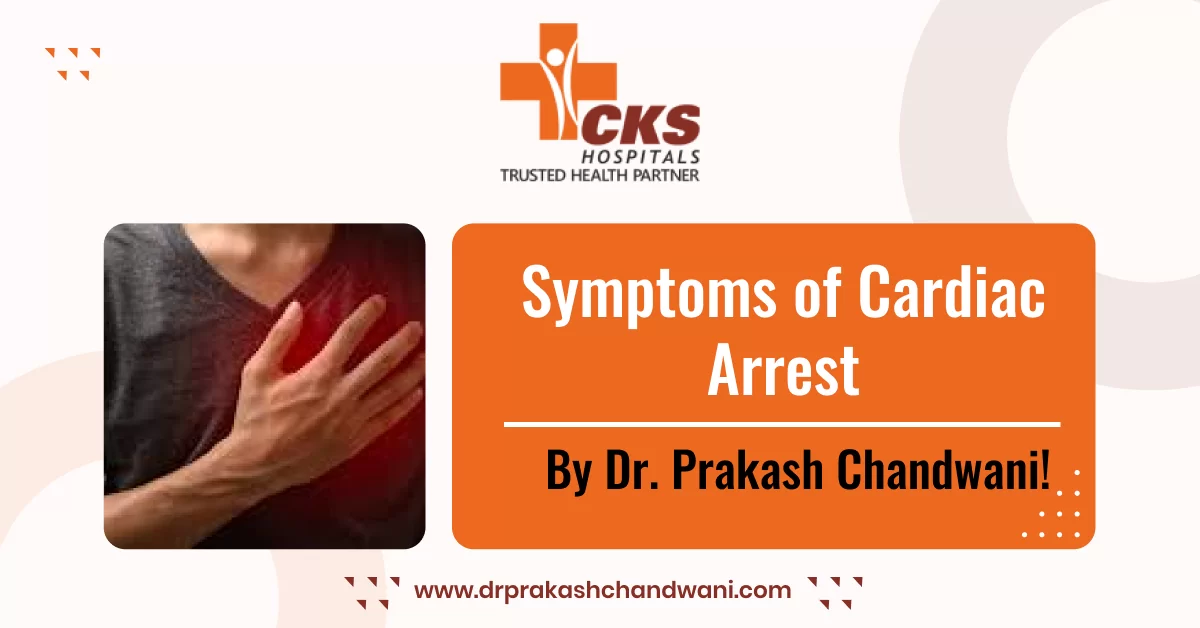
Symptoms of Cardiac Arrest
Cardiac arrest, a critical medical emergency, manifests with distinct symptoms that necessitate immediate attention and intervention. The primary indicators of cardiac arrest encompass a sudden loss of consciousness, cessation of breathing and pulse, and the presence of gasping or agonal breaths. While chest pain may be associated with underlying conditions leading to cardiac arrest, it is crucial to note that cardiac arrest can occur without prior warning signs.
In this article we will explore about common symptoms that are associated with cardiac arrest in detail. So, keep on reading to know about all of this in detail!
8 Symptoms of Cardiac Arrest:
In this section, we will help you to know about the common symptoms of cardiac arrest:
1. Loss of Consciousness:
One of the hallmark symptoms of cardiac arrest is a sudden loss of consciousness. The affected individual may collapse without any warning signs. This abrupt loss of responsiveness is a critical indicator that immediate action is required.
2. No Pulse or Breathing:
Cardiac arrest leads to the cessation of the heart’s pumping action. Consequently, there is no palpable pulse, and the person stops breathing. This absence of vital signs is a clear indication that the heart has stopped functioning, necessitating immediate cardiopulmonary resuscitation (CPR).
3. Gasping or Agonal Breaths:
In some cases, individuals experiencing cardiac arrest may exhibit gasping or agonal breaths. These are irregular, labored breaths that may resemble snorting or gasping. Although these breaths may seem distressing, they do not indicate normal respiratory function and should not be confused with effective breathing.
4. Chest Pain or Discomfort:
While cardiac arrest itself may not cause chest pain, underlying conditions leading to cardiac arrest, such as a heart attack, may manifest with chest pain or discomfort. It is crucial to recognize that cardiac arrest can occur without any preceding chest pain.
5. Dizziness and Lightheadedness:
Some individuals may experience dizziness or lightheadedness just before a cardiac arrest episode. This can be attributed to the insufficient blood flow to the brain. Recognizing these symptoms, especially in individuals at risk, can be vital for early intervention.
6. Fatigue and Weakness:
Persistent fatigue and weakness, particularly during physical exertion, may indicate an underlying cardiac issue that could lead to cardiac arrest. Monitoring and addressing these symptoms in individuals with known heart conditions is essential to prevent sudden cardiac events.
7. Nausea and Vomiting:
Nausea and vomiting may occur in conjunction with cardiac arrest, particularly when the underlying cause is a heart attack. These gastrointestinal symptoms can be indicative of compromised blood flow to the digestive organs.
8. Sudden Collapse During Physical Activity:
Cardiac arrest can sometimes occur during physical exertion, such as exercise. If an individual collapses suddenly and does not respond, it is crucial to consider the possibility of cardiac arrest and initiate emergency response procedures.
Reach Dr. Prakash Chandwani- a Cardiologist in Jaipur for Cardiac Arrest Treatment!
If you are someone looking out for heart attack treatment in Jaipur then Dr. Prakash Chandwani is the best cardiologist you can reach out. He is among those Interventional cardiologists in Jaipur who are not only having years of experience in helping patients to deal with the condition but also advise them about the changes that they need to make in their routine in order to deal with the condition. His dedicated approach, coupled with advanced cardiac knowledge, ensures that individuals receive the highest standard of treatment and support in managing and preventing cardiac issues.
FAQ: Symptoms of Cardiac Arrest
1. How does a heart-healthy diet contribute to maintaining good heart health?
A heart-healthy diet includes a variety of fruits, vegetables, whole grains, lean proteins, and healthy fats. These choices help manage cholesterol levels, control blood pressure, and support overall cardiovascular health.
2. What role does regular exercise play in maintaining good heart health?
Regular physical activity is vital for cardiovascular health. Engage in at least 150 minutes of moderate-intensity aerobic exercise or 75 minutes of vigorous-intensity exercise per week to promote heart health, improve circulation, and manage weight.
3. How can stress management contribute to maintaining good heart health?
Chronic stress can adversely affect heart health. Adopt stress management techniques such as meditation, deep breathing, or yoga to promote relaxation, reduce stress levels, and support overall cardiovascular well-being.
4. Are there specific habits individuals can adopt to maintain healthy blood pressure levels?
Adopting heart-healthy habits such as limiting sodium intake, maintaining a healthy weight, and avoiding tobacco products can contribute to healthy blood pressure levels, reducing the risk of heart disease and stroke.
5. How often should individuals undergo heart health check-ups, and what screenings are in consideration?
Regular heart health check-ups are essential. Depending on individual risk factors, screenings may include cholesterol tests, blood pressure measurements, and evaluations of blood sugar levels. Consult with healthcare providers to determine the frequency and type of screenings needed for optimal heart health maintenance.
Also Read

